term papers
Found in 88 Collections and/or Records:
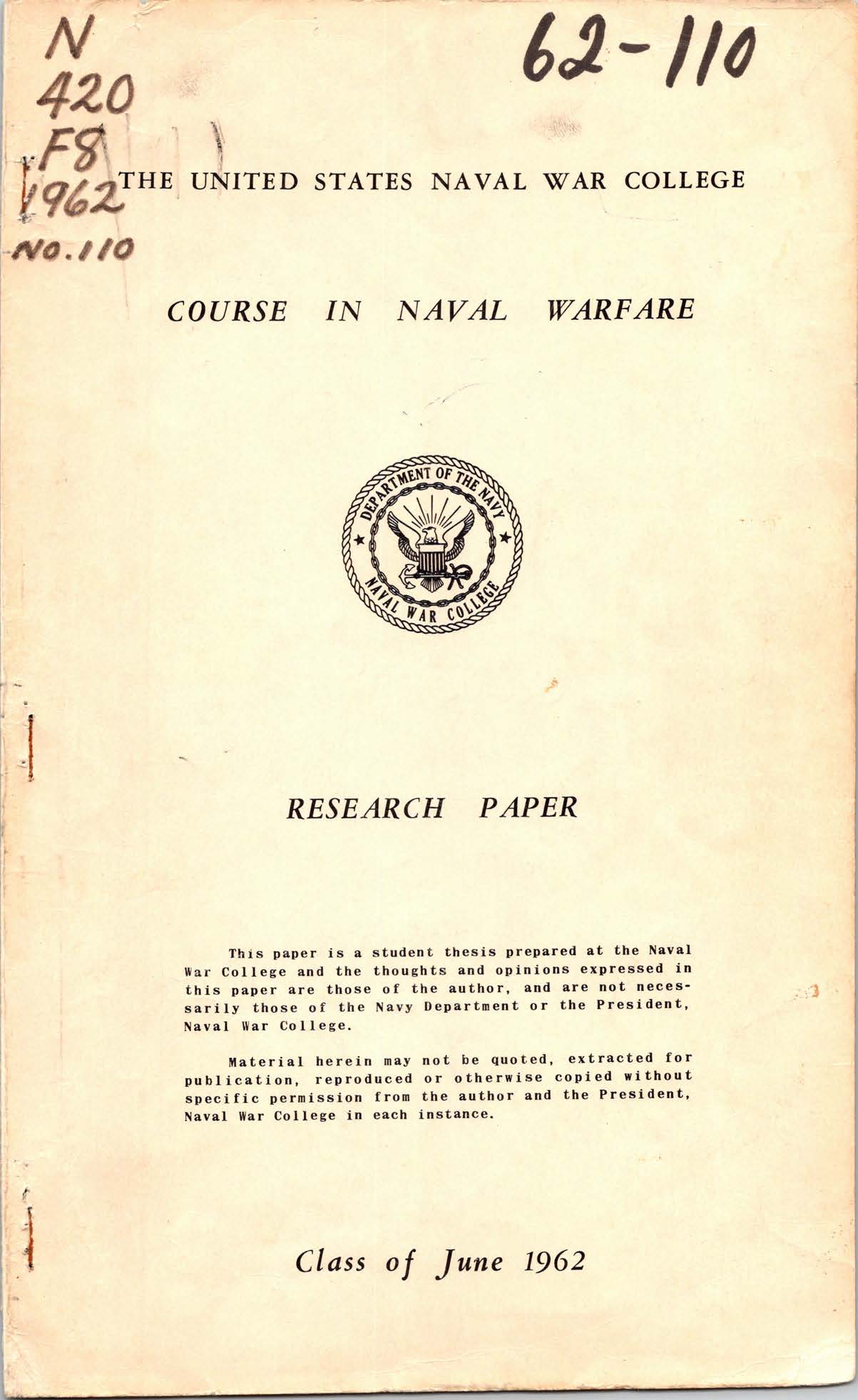
Concept of Military Operations in Space
Confronting A Multipolar World: Deterrence, Arms Control, And Ballistic Missile Defense Revisited, 1991 Mar 31
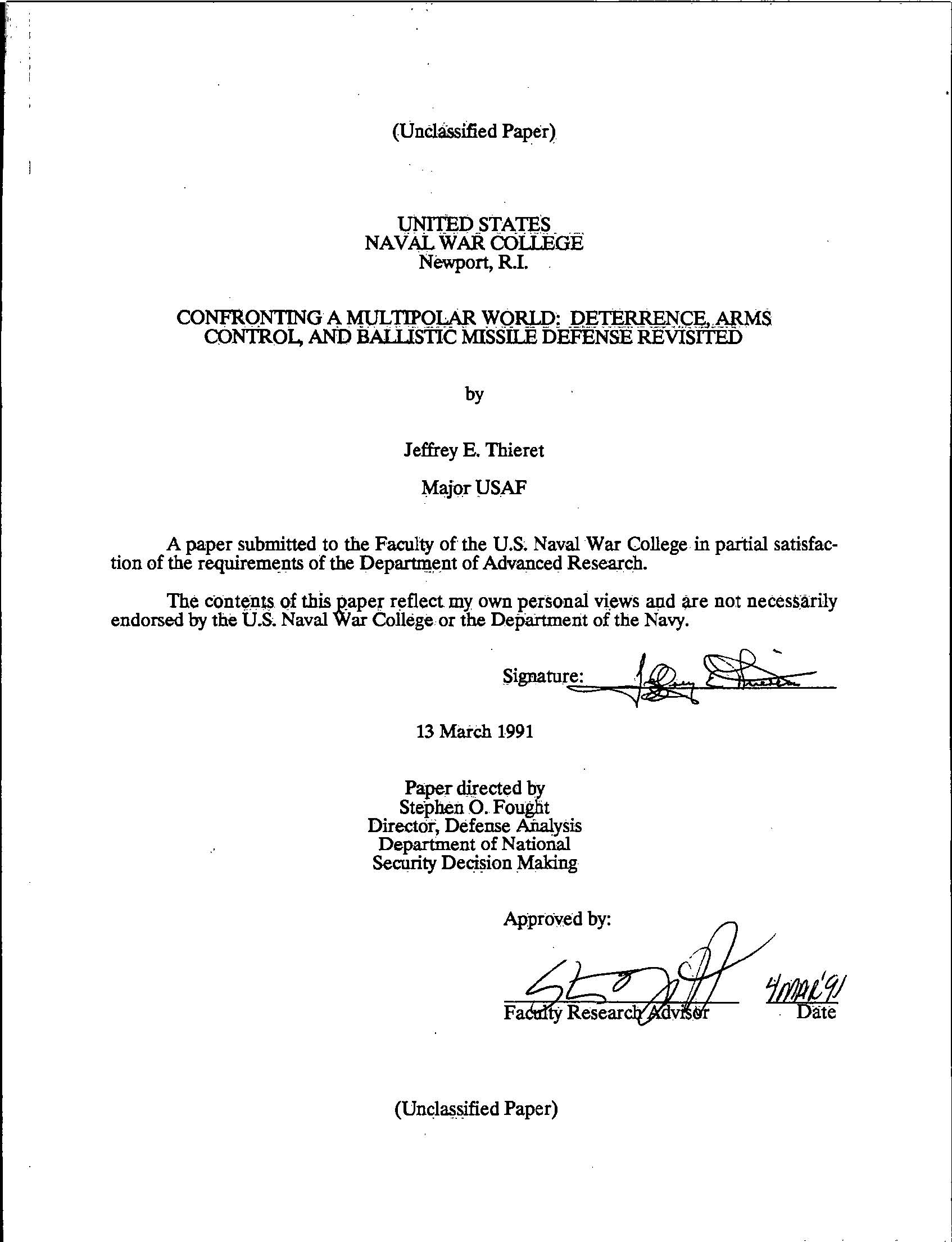
Confronting A Multipolar World: Deterrence, Arms Control, And Ballistic Missile Defense Revisited, by Jeffrey E. Thieret
Coye, Beth F.: An examination of U.S. Navy policy options towards women line officers, in light of the status of American women or the future of the restricted unrestricted line officer, 1971 Aug 9
Student paper by Lt. Cdr. Beth Frances Coye in which she presented various perspectives relating to the role of women, the significant trends in theory and factual evidence related to the changing status for American women, and the special considerations which circumscribe the Navy's woman line officer program. In her findings, Coye ascertained that the role and status of the women line officer needed to be reevaluated by the Navy with a view towards eliminating problem areas and ambivalences wherever possible.
Dunn, Jerome R., Robert C. Loomis, Jr., Robert B. Pemberton, and Ervin E. White: An analysis of the future requirements for naval warfare in a riverine/ insular restricted waterway environment, and a consideration of the policy options available to the United States in support of these requirements, 1970 Apr 21
A group research study paper by Commander Jerome R. Dunn, USN; Lieutenant Commander Robert C. Loomis, Jr., USN; Lieutenant Commander Robert B. Pemberton, USN; and Lieutenant Commander Ervine E. White, USN. This paper studied the potential requirement for continuing naval warfare activity on international waterways; U.S. security interests, commitments, general force planning and military assistance policy trends relating to areas of high susceptibility to insurgency on internal waterways; an historical assessment of U.S. and contemporary experiences in internal water warfare; and presented U.S. programs and policies for internal water naval operations and recommendations for improvements to the programs.
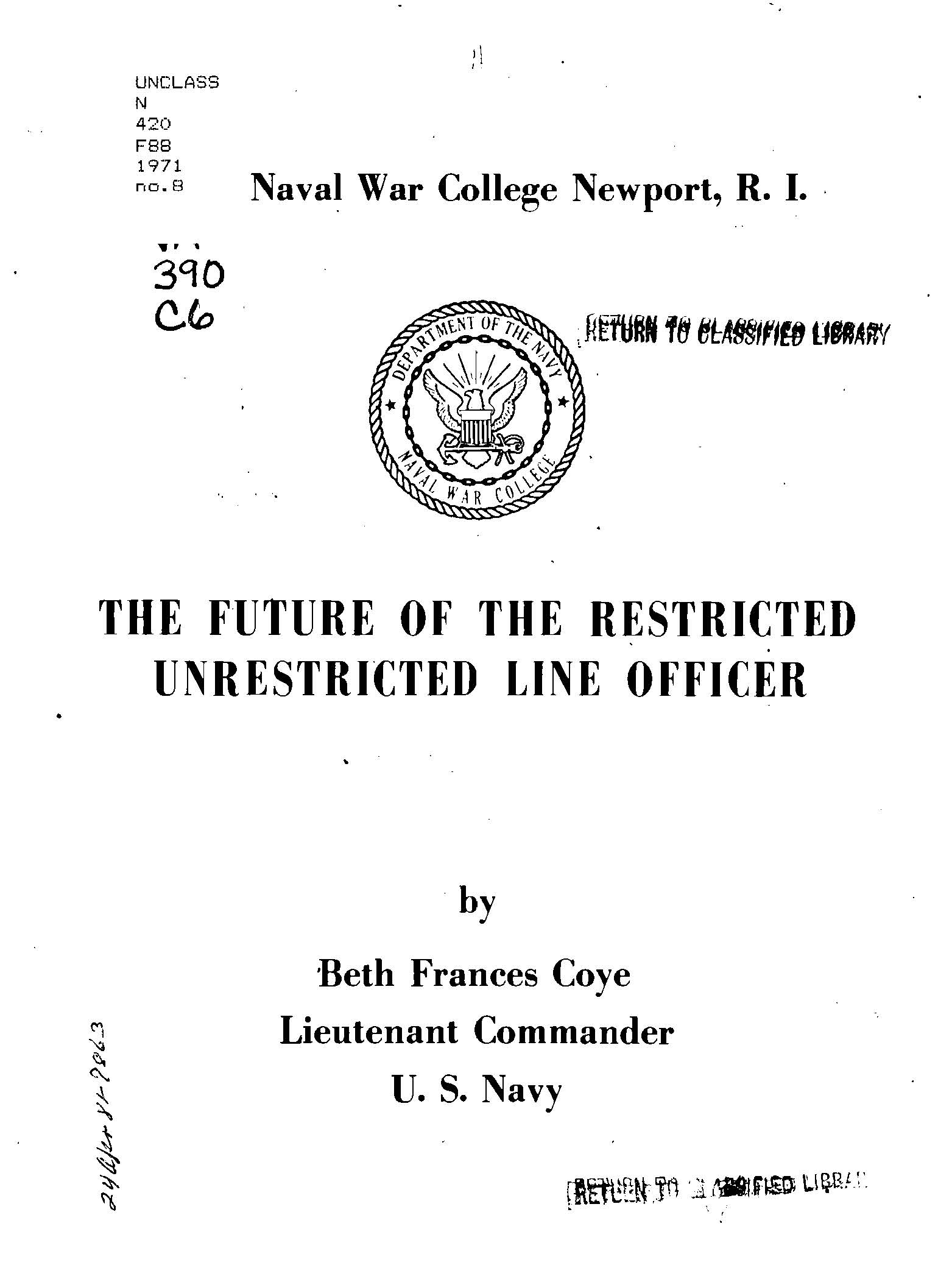
Examination of U.S. Navy policy options towards women line officers, in light of the status of American women or the future of the restricted unrestricted line officer, by Beth F. Coye
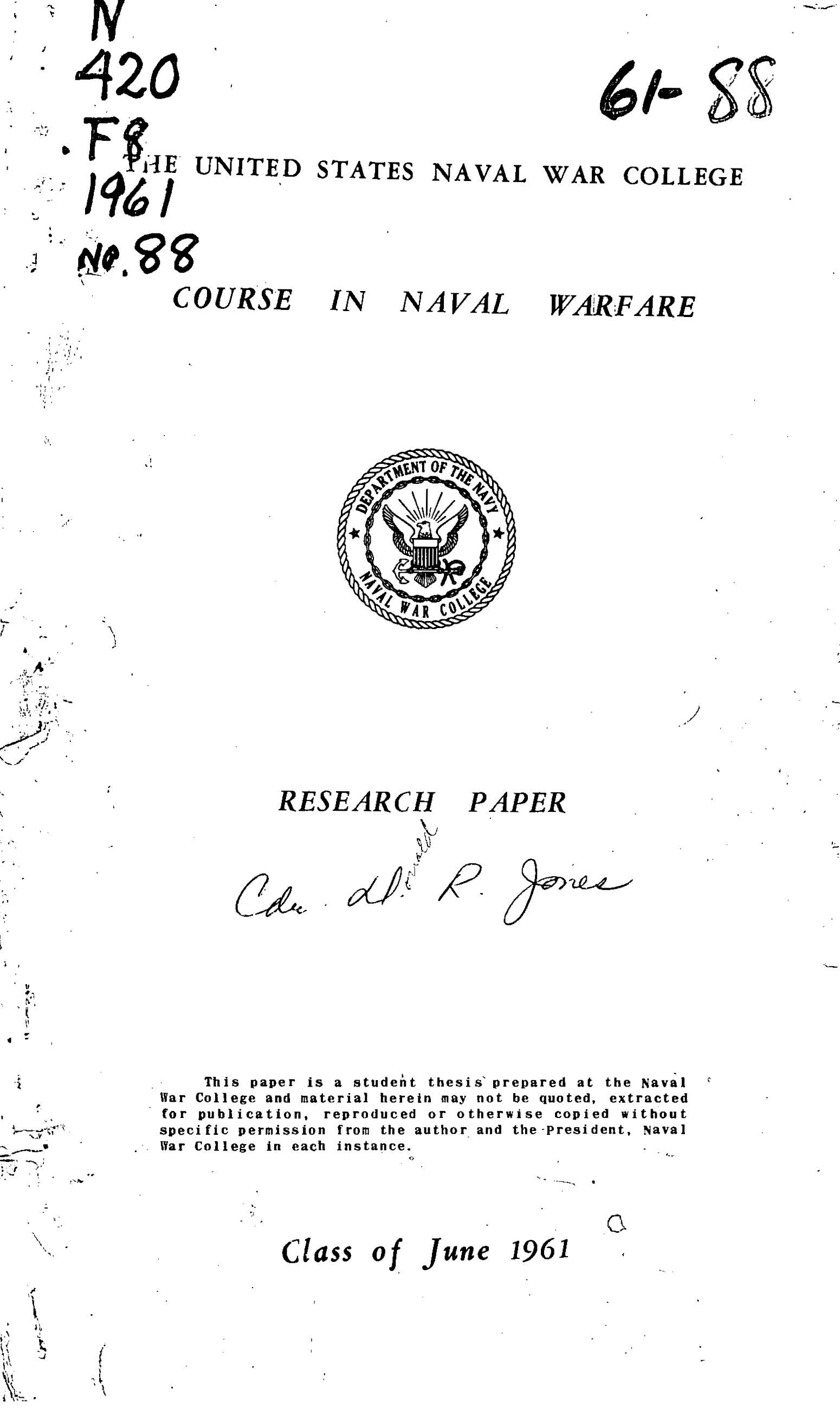
Exploitation of Inner Space -- Prime Element of National Strategy, by Donald R. Jones
Flynn, Richard E.: Potentialities of mine warfare, 1964 Mar 31
Student paper prepared by Lt. Cdr. Richard E. Flynn, USN for the Command and Staff Course at the U.S. Naval War College. In this paper, Flynn presents the development of mine warfare and its impact on past wars.
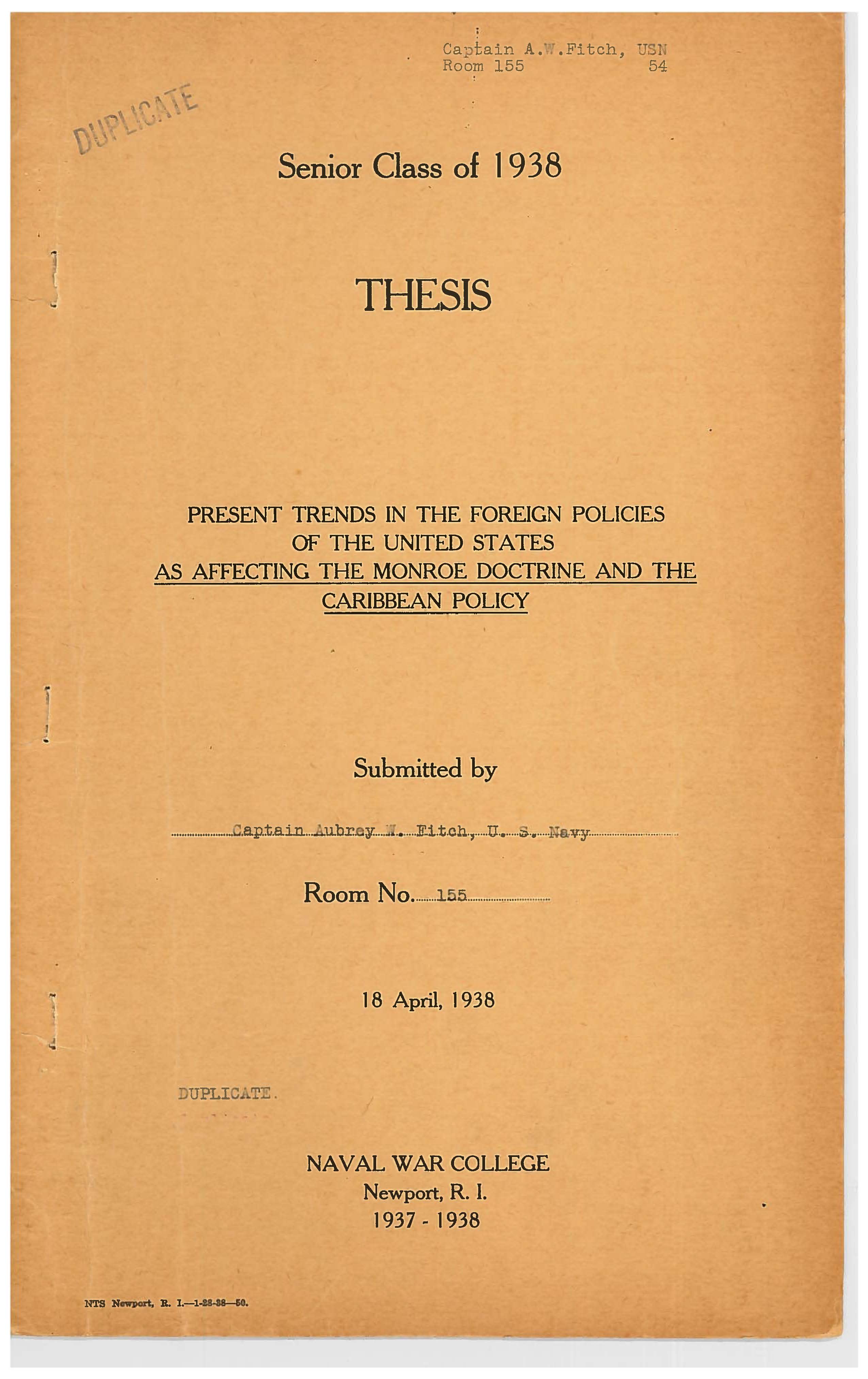
Foreign Policy of U.S: Affecting the Monroe Doctrine and the Caribbean Policy, Aubrey W. Fitch
Gaddis, Walter D.: The Peacetime Role of the United States Navy, 1959 May 1
Student paper by Cdr. W. D. Gaddis, USN in which he investigated the role of the navy in peace from its inception, through its growing pains, to its present position of primacy in the world of sea power to see if there are any lessons of value that could be deduced from past policies.
